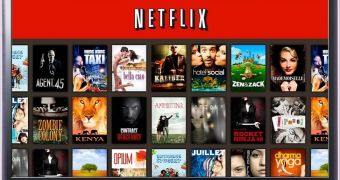Netflix is at war with the US Internet providers. After slamming most big companies for the lousy services they were offering and throttling their speeds, Netflix has filed a formal petition with the FCC demanding that it denies the merger between Comcast and Time Warner.
This particular deal has been on the table for a few months now, and it has been quite controversial because it would give Comcast an incredible amount of power in the market.
Comcast claims that without Time Warner it will not be able to stand against the likes of Google and Netflix. On the other hand, the company basically used the same line a few years ago when it wanted to merge with NBCUniversal. Then, however, Time Warner Cable was the threat.
“The proposed merger puts at risk the end-to-end principle that has characterized the Internet and been a key driver in the creation of the most important communications platform in history. Unsurprisingly, given their dominance in the cable television marketplace, the proposed merger would give Applicants [Comcast and Time Warner Cable] the ability to turn a consumer’s Internet experience into something that more closely resembles cable television. It would set up an ecosystem that calls into question what we to date have taken for granted: that a consumer who pays for connectivity to the Internet will be able to get the content she requests,” reads an introductory paragraph written by Netflix.
The document is the size of a book and has 256 pages, which explains why it took so long for Netflix to deliver their official position towards the merger, outside of statements made by the company’s execs.
The movie streaming service uses the entirety of the file to expose its clear position, pointing out the possible abuses that could take place if the merger moves through. The company also makes a point to detail how much it has had to suffer so far due to the speed throttling in which Comcast has engaged, which ultimately pushed Netflix to sign a peering deal with the company.
Netflix said at the time that it had practically been bullied into signing the contract because there was no other way to make sure that Comcast subscribers that were also clients of theirs would get their money’s worth. Netflix adds that if the merger between Comcast and Time Warner Cable moves on, it would give the two huge leverage over video streaming services like itself and Hulu.

 14 DAY TRIAL //
14 DAY TRIAL //